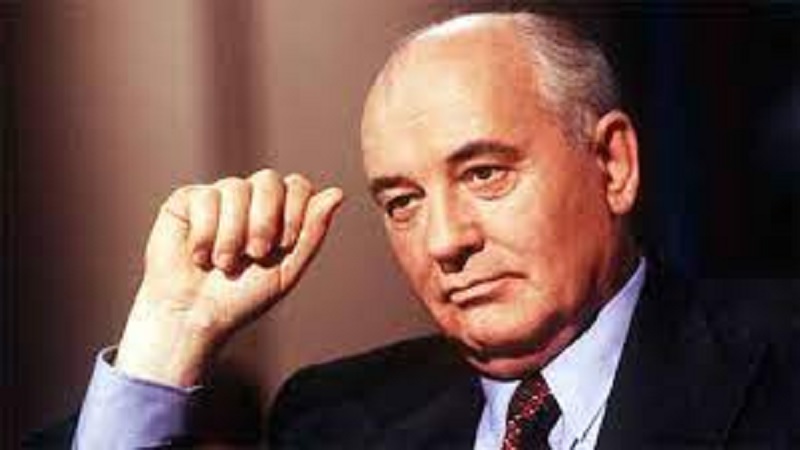
Image Courtesy: countercurrents.org
Mikhail Gorbachev set out to reform the Soviet Union and make the entire world a less dangerous place to live in. If he had succeeded, the mad race for weapons of mass destruction would have not only slowed down but, assuming the best possible outcome, there was a real chance of their elimination or the elimination process at least starting. Much better relations of the Soviet Union with the US-led western nations would have been established and the world would have come out of the danger of being divided in two power blocks. The Soviet Union would have got rid of much of its political and economic rigidities, paving the way for more democracy and economic progress.
Ultimately most of this could not be realized, but it was not for lack of sincerity or genuine effort. Anyone who gave top priority to phasing out nuclear weapons and an agenda of disarmament and peace, who also initially made important breakthroughs must be well regarded by history for these aspects at least. The fact that he rose very rapidly within the Soviet Union is evidence as much of his real talents, as it is of the fact that much of what he said appealed to the Soviet people, who realised the need for the openness and restructuring he called for.
Yet the processes started by him actually had very different impacts than what he intended. Within about a decade it was clear that the USSR had dismembered, the condition of the people of Russia had declined rapidly, those who had broken away were not much better off either, hardly any flowering of democracy was visible. There was widespread confusion and low morale, the road ahead was far from clear and above all, powerful interests had started plundering the country and its public assets like never before. At world level, the hold of imperialism had strengthened and it could now be much more arrogant and violent, as seen all too soon in Iraq and then other places. The problems of various countries who had been friends of the Soviet Union increased greatly, at least temporarily.
Gorbachev had seen the emerging serious problem of his own system, and realised that these were only going to become more serious without openness, democracy and restructuring. He was right. But to find the support for this he placed too much hope in the capitalist western countries. If he had looked for hope and answers in the genuine alternative movements, in ecological and peace movements, in other social movements which advocated justice and equality while at the same time rejecting consumerism, then he would have helped in truly giving his people a new future of hope. But he placed too much faith in the friendship and support of those forces of imperialism and capitalism which were basically interested in dismemberment of his country to be followed by its plunder and integration in an exploitative system of global capitalism at a lower level. In his eagerness to get the goodwill of these forces he failed to utilize the bargaining strengths available to him to get written guarantees for the safety, integrity and welfare of his own country and thereby he failed, despite having good and noble intentions, to adequately protect the interests of his own people who had elected him to their highest position with a lot of hope and trust.
The right way would have been for him to first have a few more years of very extensive, free debate among his own people on the path ahead and reforms needed. Thus, after a lot of internal strengthening and consensus building, he could have gone to western world for wider changes and co-operation at that level. However, he tried to push too many things at the same time. He thought that his internal position would be strengthened by the welcome he got from western leaders, forgetting that several of these leaders only wanted to use him for advancing their own narrow objective of weakening and then plundering his country and above all of creating a unipolar world dominated by them. Towards that end they were only too willing to flatter Gorbachev and shower their praise and awards on him.
It soon became amply clear that the changes unleashed by the dismemberment of the USSR had created a world with a larger and more powerful, unrestrained, unencumbered presence of the forces of imperialism. Unintentionally Gorbachev, despite being a visionary and having many noble ideas, had contributed to creating a worse and more dangerous world than the one that he set out to reform. The single most important reason for this failure was that Gorbachev was unable to realize the extent of the deceit, duplicity and dangers of the forces of imperialism. History will remember the great distance between what he sought and what he actually achieved, and we must learn from this.
*Views expressed are the author’s own. The writer is Honorary Convener, Campaign to Save Earth Now.
Other articles by Bharat Dogra:
A Time to Defend Democracy in India
Corporate tax cuts: Revenue lost could have funded important welfare projects
Himachal Pradesh: Apple growers continue protest over adverse impact of Big Business
80th Anniversary of Quit India Movement
Why the Struggle of Dhinkia Deserves Wide Support